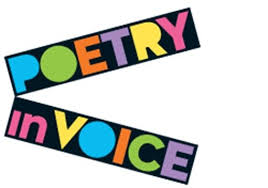
Interview with Rhea Tregebov on the sources of her poetry, from the Poetry In Voice website.
I did read a lot of poetry in high school; I was very fortunate to have gifted high school teachers who were enthusiasts. In terms of contemporary poetry, I didn’t have much access to it. But I do remember being very excited to read Miriam Waddington’s poetry, I think in part because she was from my home town, Winnipeg. Sadly, Canadian female poets, or female poets of any nationality, were not on the curriculum at that time. However I came across Waddington’s work because my mother had purchased a coffee table book of poetry and photography. In terms of traditional poetry, I was drawn to the emotional immediacy of the Romantic poets, in particular Keats and Wordsworth. One of those remarkable teachers in high school allowed me to do an independent study of Romantic poetry, something which was very unusual at the time, and I felt that I learned a great deal working on my own. And, while I don’t think I’d seen a Shakespeare play live, I was wild about his sonnets. I particularly loved Sonnet 116 “Let me not to the marriage of true minds.” I’d also seen a play at the Manitoba Theatre Centre called “Fortune and Men’s Eyes,” by the Canadian playwright John Herbert. The play title led me to Sonnet 19 “When, in disgrace with fortune and men’s eyes.” I think that was the first poem I memorized by heart.
I started writing poetry in high school, once again encouraged and inspired by these wonderful English teachers. I don’t think it was very good (in my twenties I destroyed most of it, so I don’t have copies), but I do remember how good the experience of writing itself felt. When I was an undergrad at the University of Manitoba, I took the one creative writing workshop that was offered. And I remember being very startled when the professor told us that a writer writes every day. That was a shock. I hadn’t seen writing poetry as a job, and I hadn’t seen it as work. But I immediately recognized the importance of treating writing as work. And I’ve been like a bulldog about it ever since: I’m very protective of my writing, and just won’t let go. Stubborn as anything.
What a good question. The French poet Mallarmé said it was « donner un sens plus pur aux mots de la tribu »: “to give a purer meaning to the words of the tribe.” I’m not much of a believer in purity, so that quote doesn’t work perfectly for me. But it does convey the sense that poetry can represent a truth that is different from the truth of prose. The compression and intensity that poetry can offer can work to counter easy understandings of who we are and how we live. I like the way poetry’s very syntax can subvert over-simplifications. I think being human is extremely complicated, and I think poetry can do a wonderful job of expressing that complexity.
Oh there are so many wonderful poems to choose from. That’s a really hard question. When I attended the finals in Vancouver in 2017, I heard two of the students recite Ian Williams’ “Echolalia.” I was so intrigued by how differently they interpreted the poem that it would be fascinating to try it myself. And it’s such a brilliant poem…
